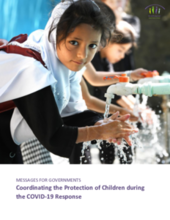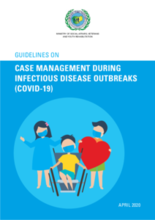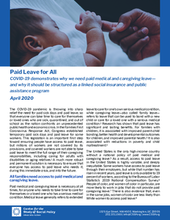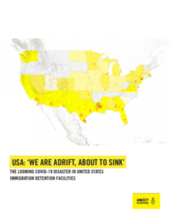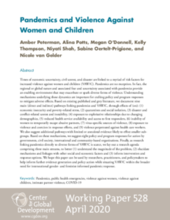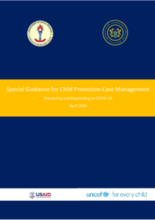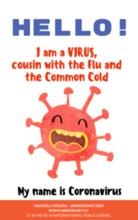This section includes resources on the response to the COVID-19 pandemic as it relates to child protection and children's care.
News on COVID-19 and Children's Care
Webinars and Events on COVID-19 Response
Displaying 511 - 520 of 756
The COVID-19 Learning Pathway aims to enable humanitarians, including local responders, to be best equipped to respond to the global pandemic COVID-19 (Coronavirus).
The Child Protection Area of Responsibility (CP AoR) has developed a series of messages calling on governments to take actions to protect children in their COVID-19 responses.
This Guideline aims to further provide technical guidance to child protection workers in Cambodia to better respond to the child protection risks during a COVID-19 pandemic through case management, including psychosocial support.
This brief from the Center for the Study of Social Policy in the U.S. calls for "a much more robust and permanent solution to ensure that everyone has access to paid leave who needs it, during this immediate crisis, and into the future."
Este resumo é para os parceiros de desenvolvimento, incluindo o governo e a sociedade civil. Apresenta recomendações e recursos para responder às necessidades das raparigas, durante a crise de COVID-19 e no período de recuperação.
This report from Amnesty International outlines the "reckless response" of U.S. Immigration and Customs Enforcement (ICE) to the COVID-19 crisis, which threatens public health, and calls for the release of immigration detainees.
Based on existing published and grey literature, the authors of this paper document nine main (direct and indirect) pathways linking pandemics and violence against women and children (VAW/C). The paper is aimed to be used by researchers, practitioners, and policymakers to help inform further evidence generation and policy action while situating VAW/C within the broader need for intersectional gender- and feminist-informed pandemic response.
This Guideline aims to further provide technical guidance to child protection workers in Ghana to better respond to child protection risks during the COVID-19 pandemic through case management, including psychosocial support.
This book is written for children to help them understand the Coronavirus.
This dashboard contains the latest data from UNICEF’s global databases that are relevant to the COVID-19 response for children. Explore country-level data by gender, residence and wealth quintile.

